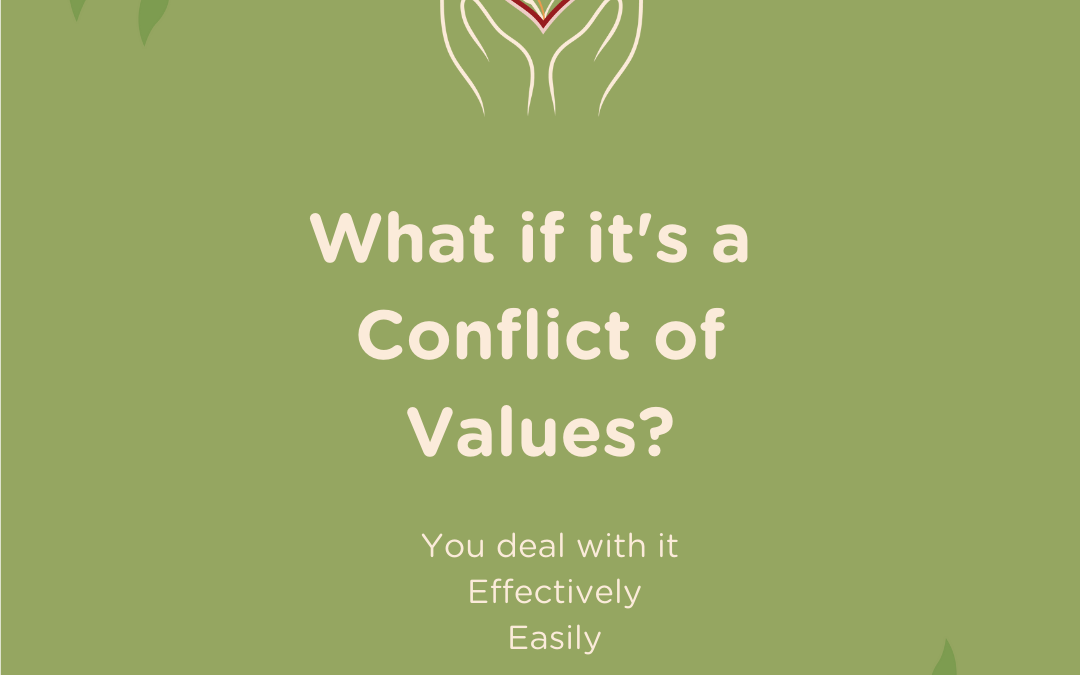What is a conflict of values?
A conflict of values is a fundamental difference in beliefs. Deep down, you believe one thing and your rangatahi believe something else.
And this is why the behaviour you see is so consistently out of line with the behaviour you would like to see.
They value one thing. You value something else.
Take the messy bench: you value your rangatahi being responsible for themselves and therefore you expect to see the bench being tidied up by them after they’ve used it. They value being looked after and therefore expect you to do the tidying up after them. Your lofty goal of being self-responsible is something they apply to their behaviour with their friends (excellent!) but not at home.
Or perhaps you have two rangatahi who, when expected to participate in family activities (such as eating dinner together four nights a week), spend the entire time winding up their siblings. All your hard work in preparing dinner is spoilt by an atmosphere of tension. And you wonder why you even bother.
The thing is, you value family and believe that time spent together should be fun, positive and affirming of everything you hold dear for your family. Whereas they value independence, and believe that eating dinner together as a family is an inconvenient waste of their time.
This is the basis of human conflict: our beliefs. Which reflect in our surface-level behaviours.
How do I know it’s a conflict of values?
You will know you are dealing with a conflict of values because their behaviour is consistent. And that’s after you’ve had conversations with them.
If it’s a straight conflict of needs, then an I message will sort it. They agree with your values and hadn’t realised their behaviour was a problem. When you highlighted it with your well crafted I message, the behaviour stopped.
If it’s a hidden conflict of needs, then a second conversation in which you explore their need that has now surfaced has pretty much fixed it. You’ve had a couple of weeks of ‘training’ in which you’ve been consistent and have followed through with consequences.
And you can see it’s paying off. The bench is really no longer a problem. Read more here.
If, however, you continue to have a problem with a messy bench then it is a conflict of values you are dealing with.
And this is worth exploring.
But first … you have to get hired!
Because this time you will be exploring the conflict from the place of a consultant.
You want to be hired.
A rookie mistake is to start trying to influence your rangatahi before they have actually agreed to listen to you.
And even more important …
Let’s go back one step further before you even go there. The very first effective step you can take is to know your why. Take some time to get really clear on why this is important to you.
If you are coming from the viewpoint of ‘I’m sick and tired of cleaning up the bench’ you may well find it doesn’t cut the mustard. If, however, you have some very clear beliefs about the importance of independent rangatahi, now is the perfect time to ‘out’ them.
To know your why.
You don’t have to share, although you may end up doing so further along in the process. For now, they are yours to own.
And perhaps, after being reflective and exploring your ideas you may decide it’s not so important because … and that’s really useful information too.
If you do decide it’s not important then it is essential for you to explore this decision. I often hear parents saying, “I decided not to take things any further because it didn’t seem so important after all.”
And I always want to know the why.
The reasons I get back are always very interesting. Because if it’s an issue until now, something will be driving it.
Deciding that “it’s my problem” or “it’s too little to bother with” may, in the long run, add up to an enormously large backward step.
It will definitely be a lost opportunity for a shared learning experience.
So I encourage you to open it up, and explore your why fully. It may be that you are shying away from conflict with your rangatahi to ‘keep the peace’ or to ‘be seen as a likeable parent’.
Taihoa. Stop. Right. There.
Where else are you giving away your power?
These wero, these challenges, that our rangatahi bring us are powerful learning experiences that can bring change not just in our families but in so many other areas of our lives.
Be brave. Explore further. Book a kōrero with Melanie to take your next step.

